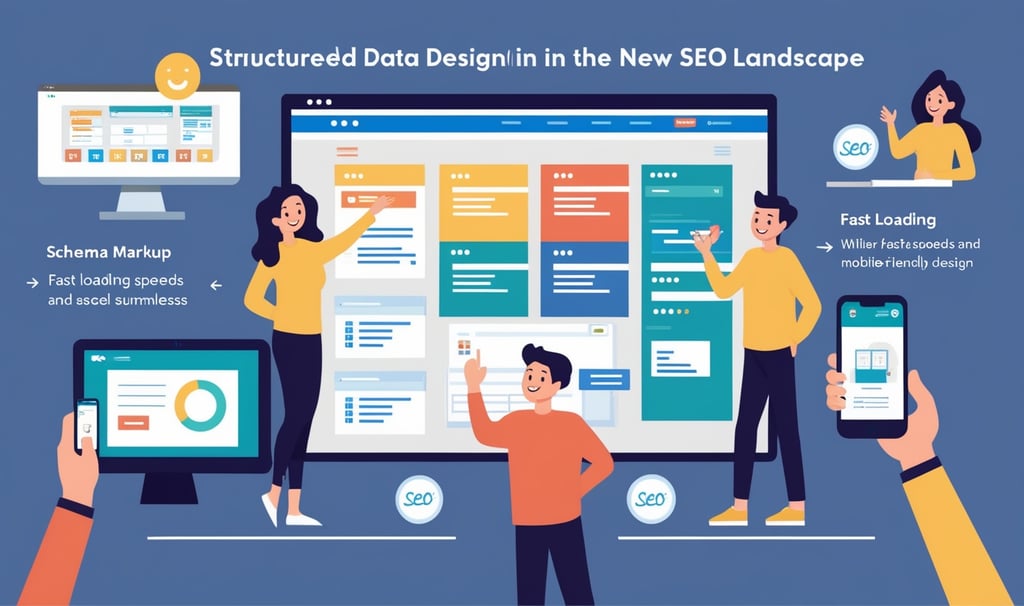The Future of SEO if ChatGPT Kills Search Engines
Explore the future of SEO as AI like ChatGPT revolutionizes information retrieval. Discover new strategies, the evolving role of content creators, and implications for businesses and consumers in an AI-dominated landscape.


The Future of SEO if ChatGPT Kills Search Engines: Navigating the New Landscape of AI-Driven Information Retrieval
Introduction:
The landscape of digital marketing is ever-evolving, and the future of Search Engine Optimization (SEO) is a topic of immense interest and speculation. With the advent of advanced AI models like ChatGPT, there are growing discussions about the potential impact on traditional search engines. What if ChatGPT, or a similar AI, becomes the primary tool for information retrieval, effectively replacing search engines? This blog explores this scenario, delving into the possible transformations in SEO strategies, the role of content creators, and the broader implications for businesses and consumers.
The Rise of ChatGPT and AI-driven Information Retrieval:
ChatGPT, developed by OpenAI, represents a significant leap in natural language processing and understanding. Unlike traditional search engines that provide a list of links in response to a query, ChatGPT can generate comprehensive, conversational answers. This ability to deliver direct, contextually relevant responses is both powerful and disruptive.
Understanding the Shift: Traditional search engines operate by indexing web pages and ranking them based on relevance to user queries. In contrast, ChatGPT processes the user's question and generates an answer drawing from its extensive training data.
User Experience: The convenience of receiving a single, well-formulated answer instead of sifting through multiple search results could make AI-driven information retrieval highly appealing to users.
Implications for Traditional SEO:
If ChatGPT were to supplant traditional search engines, the field of SEO would undergo profound changes. Here are some key implications:
1. Keyword Strategy and Optimization
Shift from Keywords to Context: Traditional SEO heavily relies on keywords to rank content. With AI like ChatGPT, the focus would shift from specific keywords to understanding the context and intent behind user queries.
Content Quality Over Quantity: Quality content that thoroughly addresses user questions would become paramount, as AI models favor in-depth and informative responses over keyword-stuffed pages.
2. Content Creation and Format
Conversational Content: As AI models generate answers in a conversational tone, content creators would need to adopt a more engaging, dialogue-like style.
Multimedia Integration: AI models could integrate multimedia content seamlessly. Thus, optimizing images, videos, and other media forms would be crucial.
3. Link Building and Authority
Decreased Emphasis on Backlinks: Traditional SEO values backlinks as a measure of authority and relevance. AI-driven systems might reduce the emphasis on backlinks, focusing instead on the factual accuracy and depth of content.
New Authority Metrics: New metrics for determining content authority and relevance would emerge, possibly based on user engagement and satisfaction metrics rather than link profiles.
***Our research found the best Keyword Research - SEO Software you can try it***
New SEO Techniques in a World Predominated by AI:
To thrive in a world where AI-driven tools like ChatGPT dominate, businesses and marketers would need to adopt new SEO strategies:
1. Emphasizing Structured Data
Schema Markup: Implementing schema markup would help AI models understand and retrieve content more effectively. Structured data makes information more accessible to AI algorithms.
Content Segmentation: Breaking down content into clearly defined sections with headers, lists, and tables can improve AI’s ability to extract relevant information.
2. Enhancing User Experience
User-Centric Design: Websites would need to focus on delivering an exceptional user experience, ensuring that content is easily accessible and navigable.
Fast and Mobile-Friendly: Speed and mobile-friendliness would remain critical as users expect instant, seamless access to information.
3. Building Brand Authority
Thought Leadership: Establishing thought leadership through high-quality, expert content would become even more important. Brands need to be seen as trustworthy sources of information.
Engagement and Interaction: Encouraging user interaction and engagement through comments, forums, and social media can enhance a brand’s authority and relevance.
The Role of Content Creators:
Content creators would play a crucial role in this new landscape. Their ability to produce high-quality, informative, and engaging content would determine the success of SEO strategies. Key aspects include:
1. Depth and Accuracy
Research-Driven Content: Thorough research and fact-checking would be essential to create content that AI models deem reliable and authoritative.
In-Depth Analysis: Providing detailed analysis and insights rather than superficial information would set content apart.
2. Adaptability
Staying Updated: Content creators must stay updated with the latest developments in AI and SEO to adapt their strategies accordingly.
Versatile Skills: Skills in multimedia content creation, data visualization, and interactive content would be valuable.
Broader Implications for Businesses and Consumers:
The shift from traditional search engines to AI-driven information retrieval would have broad implications:
1. For Businesses
Competitive Edge: Businesses that adapt quickly to the new SEO strategies and leverage AI effectively would gain a competitive edge.
Customer Insights: AI models can provide deeper insights into customer behavior and preferences, enabling more targeted marketing strategies.
2. For Consumers
Convenience: Consumers would benefit from more direct and accurate answers to their queries, enhancing their online experience.
Privacy Concerns: Using AI models raises data privacy and security concerns. Ensuring user data protection would be critical.
The Future of Search Engines:
While the potential of AI models like ChatGPT is immense, it is unlikely that traditional search engines will become obsolete overnight. Instead, we may see a hybrid approach where AI tools complement search engines, offering users the best of both worlds.
Enhanced Search Engines: Search engines could integrate AI models to provide more nuanced and conversational search results.
AI-Assisted Browsing: Users might use AI tools alongside search engines to get a broader perspective on their queries.
Conclusion:
The rise of ChatGPT and similar AI models signifies a transformative period for SEO and digital marketing. While the replacement of traditional search engines is speculative, the potential changes in SEO strategies and the role of content creators are worth exploring. Businesses that embrace these changes and adapt to the evolving landscape will be well-positioned to thrive in the future. The focus will shift towards creating high-quality, user-centric content that meets the demands of AI-driven information retrieval, ensuring a more efficient and engaging experience for consumers.


